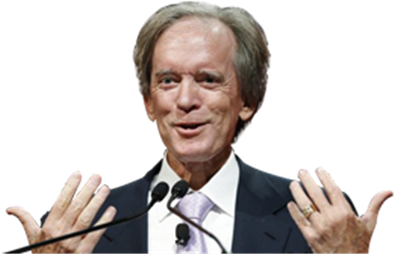(单词翻译:单击)
It used to be that calling someone a “good manager” was to damn with faint praise. But we may have had a surfeit of charisma and be ready for some nuts-and-bolts leadership.
过去说某人是个“好经理”其实是明褒暗贬。但我们或许已经见过太多的魅力型领袖,现在我们期待有一些脚踏实地的领导者。
Sanofi’s Chris Viehbacher is the latest larger-than-life chief executive to be ousted by his board for a direct, go-it-alone style and spotty execution. Fund manager Pimco quickly disassociated itself from “bond king” Bill Gross’s temperamental leadership style after his departure, with a marketing campaign that highlights a reasoned, team-centric approach.
赛诺菲(Sanofi)的魏巴赫(Chris Viehbacher)成为因管理直率、喜欢单干以及执行力存在瑕疵而被董事会罢免的最新一位魅力型首席执行官。基金管理公司太平洋投资管理公司(PIMCO)在“债券之王”比尔•格罗斯(Bill Gross)离职后,也迅速放弃了格罗斯的喜怒无常的领导风格,并推行一种注重理性、以团队为核心的市场营销策略。

Perhaps more tellingly, 24 of Harvard Business Review’s latest list of the world’s 100 best-performing CEOs have degrees in engineering. Nitin Nohria, dean of Harvard Business School, comments in an accompanying article that an engineering background signals practicality and pragmatism: “Engineering is about what works, and it breeds in you an ethos of building things that work – whether it’s a machine or a structure or an organisation.” Ultimately, he concludes: “It makes you think about costs versus performance.”
或许更能说明问题的是,在《哈佛商业评论》(Harvard Business Review)最新出炉的世界前100位最佳CEO的榜单上,24人获得过工程学学位。哈佛商学院院长尼廷•诺里亚(Nitin Nohria)在榜单附文中评论,工程学背景意味着实用性和务实性。“工程学与实用性有关,它能培育一种建造实用事物的氛围,无论是机器、架构还是组织。”最后,他总结道:“它让你考虑成本与效益的关系。”
Spencer Stuart headhunter James Citrin adds that engineers “excel at ‘architectural thinking’ and logical problem solving”. So much for visionary rhetoric.
史宾沙管理顾问公司(Spencer Stuart)的猎头詹姆士•西特林(James Citrin)补充称,工程师“擅长‘架构性思维’和解决逻辑问题。”我们听过太多关于未来的豪言壮语了。
Ideas on leadership tend to change over time, and the pendulum seems to be swinging away from egocentric, inspirational stagecraft toward steady, competent execution. New Intel CEO Brian Krzanich’s roots in engineering initially worried some investors who wondered whether he had the necessary oomph. He has since emerged as a practical leader with a shrewd approach that is steadily repositioning the company to compete in a post-PC world. Google’s famous experiment in manager-free organisation was not only shortlived, but paved the way for a talent management system designed to rely more on procedure than instinct.
关于领导力的看法往往会随着时间改变,而这一次,钟摆似乎从以自我为中心、鼓舞人心的表演型领导者转向了稳重能干的执行者。在英特尔(Intel)新任CEO布莱恩•克兰尼克(Brian Krzanich)上任之初,一些投资者担心工程学专业出身的他是否具备必不可少的领袖魅力。克兰尼克后来成了一个务实的领导者,实施了明智的策略,平稳地调整了公司在后PC时代的竞争定位。谷歌(Google)进行的著名管理实验——“无经理组织”不仅昙花一现,而且还为一种更依赖程序而非直觉的人才管理体制铺平了道路。
From the start of the 20th century, scholars toiled to identify universal personal traits of successful leaders – the “great man” theories. But no such characteristics were found. It was not until the 1960s that “situational leadership”, the notion that different kinds of organisations and business environments need different kinds of executives, took hold. Big manufacturers, the theory held, were best led by command and control and small, knowledge organisations, by collegial collaboration.
从20世纪初开始,学者们一直不辞辛苦地界定成功领导者共有的个性特征——也就是“伟人”理论。但他们没能找到这种特质。直到20世纪60年代,“情境型领导力”的观念才站稳了脚跟,即不同类型的组织和企业环境需要不同类型的管理者。该理论认为,大型制造企业最好依靠命令和控制来管理,而小型知识型组织最好依靠合议和协作进行管理。
In the 1990s, as organisations became more complex and executives job-hopped with increasing frequency, attention again turned away from context and back to the individual. We developed the distinction between “managers” and “leaders” – one succeeding on efficiency of process and procedure, the other leading the charge to change them.
到20世纪90年代,随着组织变得越来越复杂,高管跳槽也日益频繁,关注点又从情境转回到个人身上。我们对“管理者”和“领导者”进行了区分——前者擅长有效执行流程和程序,而后者则负责调整这些流程和程序。
Aspiring leaders got the message that it was best for their career to shun the “boring” manager role. When Jean-Francois Manzoni, faculty director of a leadership course for senior executives at Insead, asked how they allocated their time, he found they spent most of it “doing” and “mobilising people” (as visionaries are wont to do), much less on “strategising” and even less on “architecting” processes and structures.
有抱负的领导者认识到,避免“无聊”的管理者角色最有利于他们的职业生涯。欧洲工商管理学院(INSEAD)负责领导力高管课程的系主任让-弗朗索瓦•曼佐尼(Jean-Francois Manzoni)曾询问高管们如何分配时间,结果发现这些高管花了绝大部分时间“做事”和“鼓舞人心”(远见者倾向于做这些事情),他们花在“制定战略”上的时间较少,花在“构建”流程和架构上的时间就更少了。
In 2011, inspired by a scene in the film Amadeus, when a charismatic Mozart dazzles an audience by composing a sonata on the spot that is better than his rival Salieri’s piece, researchers Maia Young, Michael Morris, and Vicki Scherwin set out to find the sources of managers’ mystique. In a study published in the Journal of Management, they found that people attribute “mystical” qualities to managers when they seem to succeed effortlessly, thanks to extraordinary personal qualities. Managers who were seen as visionary attracted a greater following because people wanted to be associated with them. Those whose success seemed to derive from visible causes, such as long hours, careful analysis or deliberate procedure, attracted fewer followers.
电影《莫扎特传》(Amadeus)中有这样一个场景,富有非凡魅力的莫扎特(Mozart)现场谱了一曲让观众心醉神迷、令对手萨列里(Salieri)相形见绌的奏鸣曲。2011年,受此启发,研究者马娅•扬(Maia Young)、迈克尔•莫里斯(Michael Morris)和维基•谢尔温(Vicki Scherwin)开始着手研究人们为何对管理者感到神秘。他们在发表于《管理学期刊》(Journal of Management)上的研究报告中指出,人们认为那些凭借非凡的个人品质、似乎不费吹灰之力就能取得成功的管理者具有某种“神秘的”品质。被视为具有远见卓识的管理者能吸引更多追随者,是因为人们想要和他们关联在一起。而那些似乎依靠可见手段,比如长时间工作、仔细分析或者采取审慎程序而成功的人吸引的追随者较少。
It seems that many leaders now want to leave the hands-on management work to others, preferring to convey their authenticity instead of rolling up their sleeves to transform antiquated company structures. But, as the Pimco and Sanofi changes remind us, the time may have come to recognise the value of efficient systems and robust controls rather than inspirational messaging.
现在有许多领导者似乎想把需要亲力亲为的管理工作留给别人,自己更喜欢传达正确性,而不是卷起袖子改变业已过时的公司架构。但是,正如赛诺菲和太平洋投资管理公司的变革提醒的那样,现在有必要认识到,高效体系和稳健控制比提出鼓舞人心的愿景更有价值。


